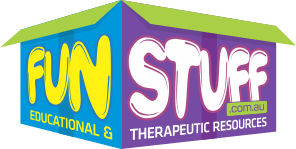How to Teach Social Skills to Children with Autism
Teaching social skills to children with autism is an essential but challenging journey. Social skills are crucial for all children to effectively interact and communicate within their community. Understanding the unique learning style of children with autism can transform these challenges into opportunities for growth and connection.
Understanding Autism and Social Skills
Autism affects children in various ways, but commonly it can impact their ability to intuitively develop social skills such as making eye contact, taking turns in conversation, understanding emotions, and building relationships. Structured teaching approaches are often required to enhance these skills.
Effective Strategies for Teaching Social Skills
- Modelling Behaviour: Children with autism benefit greatly from clear, consistent examples of social interactions. Demonstrative teaching methods can help them understand the give-and-take nature of conversation and social relationships.
- Social Stories: These are short descriptions of a particular situation, event, or activity, which include specific information about what to expect in that situation and why. They help children decode social cues and proper/preferred behaviours in a structured way.
- Role-Playing: This strategy involves practicing social interactions and scenarios in a controlled environment. Role-playing can help children with autism understand and practice the nuances of social exchanges.
- Visual Supports: Utilising visual aids like picture schedules, charts, or flashcards can reinforce learning and provide reminders of social norms and sequences.
- Technology Aids: Interactive apps and games that simulate social scenarios can provide safe, repeatable, and engaging ways for children to learn social skills.
Fun Stuff’s Role in Reinforcing Social Skills
At Fun Stuff Educational & Therapeutic Resources, we understand the importance of appropriate tools in teaching social skills to children with autism. Our specially curated products, such as social skill board games, emotion flashcards and resource support packs, are designed to make learning social skills an engaging and enjoyable experience. By integrating these resources into daily learning activities, parents and educators alike can provide effective and interactive learning experiences.
Final Thoughts
Teaching social skills to children with autism is not only about enhancing their ability to interact, but also empowering them to lead fulfilling and independent lives. At Fun Stuff Educational & Therapeutic Resources, we are committed to supporting this journey by providing high-quality, effective educational and therapeutic resources. Explore our products today and discover how we can assist you in making a meaningful difference in the lives of children with autism.
Recent Posts
-
Engaging Primary Minds: Exploring Learning Games for Primary School
In the dynamic world of primary education, teachers constantly seek innovative methods to enhance cl …11th Jun 2024 -
How to Teach Social Skills to Children with Autism
Teaching social skills to children with autism is an essential but challenging journey. Social skill …3rd Jun 2024 -
How to Teach Children with Special Needs: Expert Strategies and Tools
Teaching children with special needs presents unique challenges but also extraordinary opportunities …3rd Jun 2024




